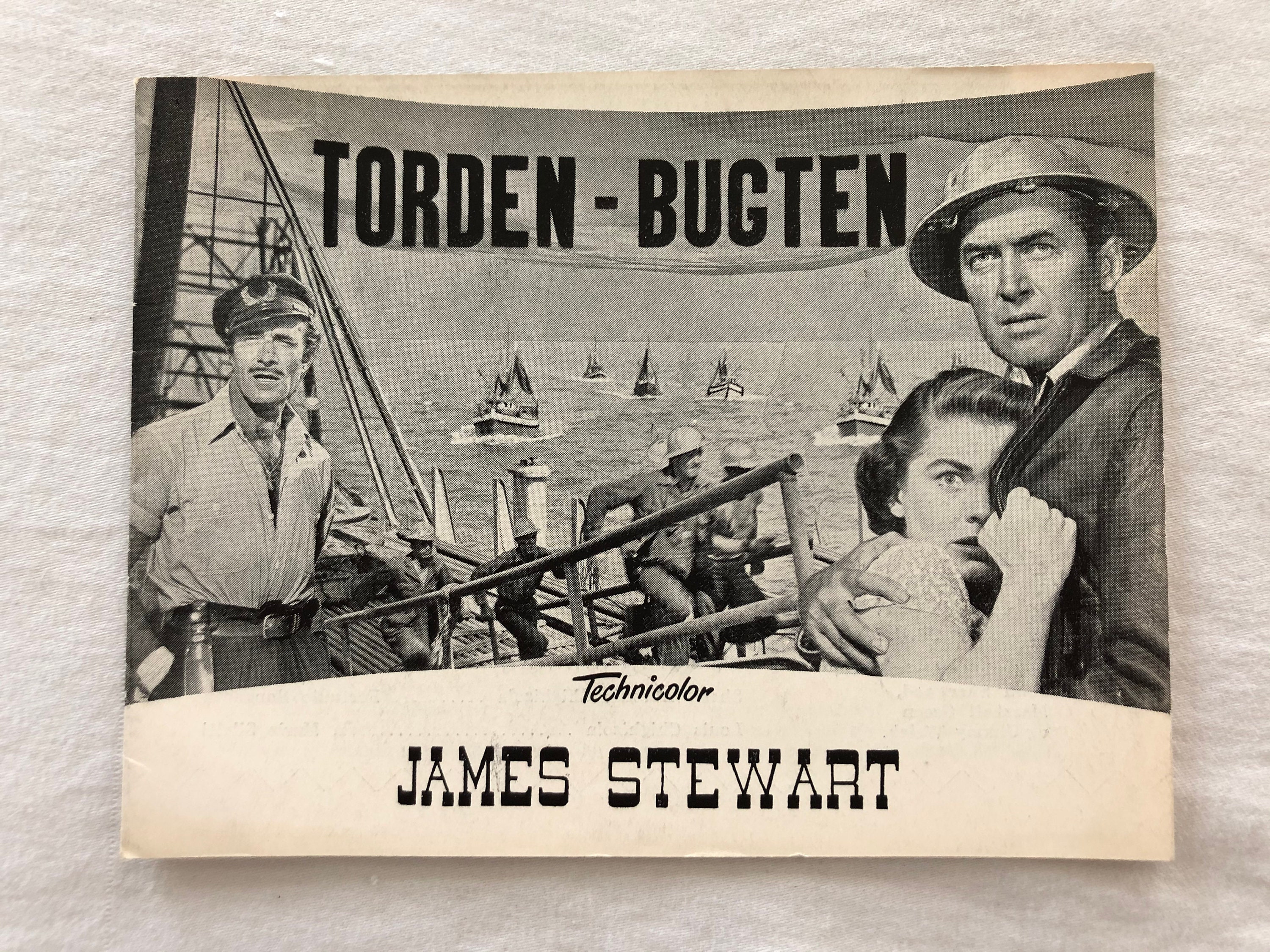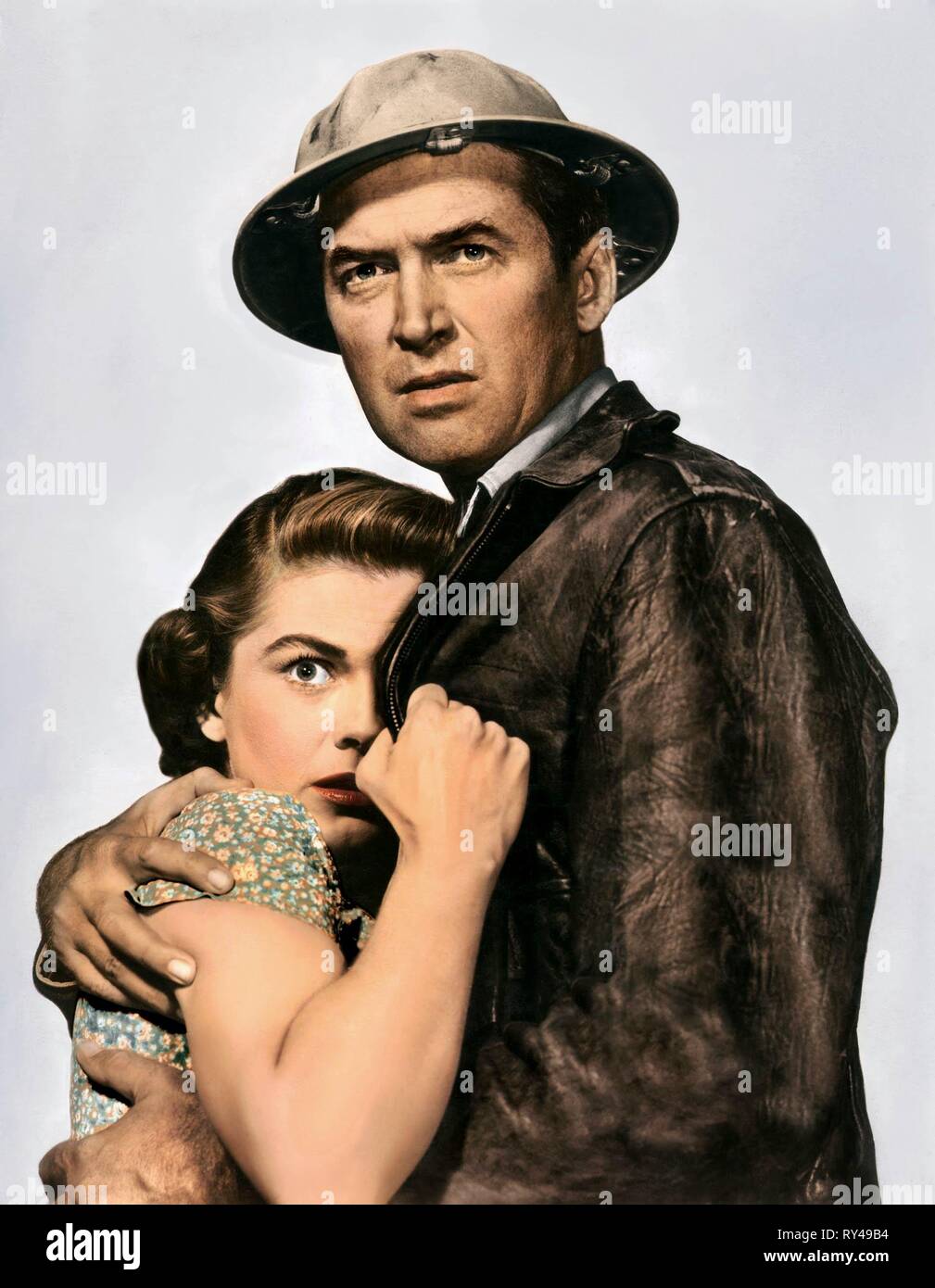Set in 1946 Louisiana, Thunder Bay connects oil drilling and shrimping from its opening shot of Johnny Gambi and Steve Martin (James Stewart) walking down a long deserted road: They carry a heavy chest and discuss a money making idea that will require a $2 million investment, but then a Port Filliay Fish Company truck picks them up and takes them into town for a 2:00 appointment, aligning their oil drilling plan with the community’s fishing industry. The connection between fishing and oil drilling broached by the film is emphasized here, especially since, once they reach town, Gambi rents a shrimp boat for $50 a day, so the two can, they hope, form a partnership with a big oil man, Kermit MacDonald (Jay C. Flippen).
At first, however, the relationship between oil drilling and fishing is seen as conflicting rather than interdependent. To offset any hostility their enterprise might ignite, Gambi and Martin encourage area fishermen to think they are opening a fish cannery. But when their potential investors arrive by seaplane and, despite company troubles, agree to fund Steve Martin’s project, an offshore drilling platform and rig, the film’s major conflict is broached. Even though business investor MacDonald gives Stewart money in advance to pay off debts and promises to deposit $500,000.00 the next day, the area shrimpers are skeptical of this possible disruption to their means of survival and way of life.
The shrimp boat owner Dominique’s (Antonio Moreno) daughters serve as love interests for Gambi and Martin and another source of conflict between local fishermen and the oil drillers: the elder sister Stella (Joanne Dru) eventually partners with Martin, and the younger sister Francesca (Marcia Henderson) pairs up with Gambi. Primarily, however, the townspeople oppose Martin and Gambi, believing that oil and shrimp can’t mix. The primary conflict of Thunder Bay, then, is between those who make a living from the sea—shrimpers and other fishermen—and those who would like to make a living from what lies beneath its waters—oilmen. Although history suggests this conflict is irresolvable, however, the film negotiates a resolution between these two world views and sources of income that is based in organismic approaches to ecology.



No comments:
Post a Comment